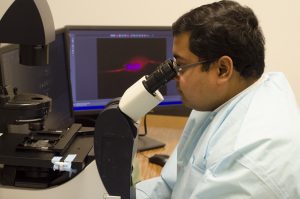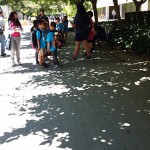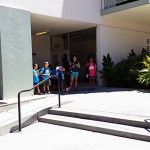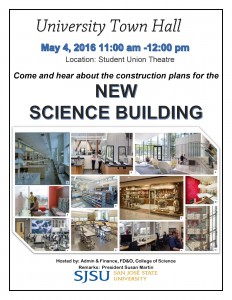-

-
Students celebrate at Admitted Spartans Day by holding up banners with their intended graduation year.
-

-
A student visits SJSU for Admitted Spartans Day.
-
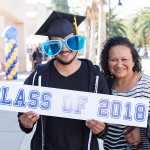
-
A transfer student poses for a photo on Admitted Spartans Day.
-
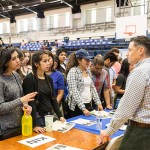
-
Students and their families talk with advisors during Admitted Spartans Day.
Photos by David Schmitz
San Jose State University is one of a dozen Bay Area institutions to receive funding from the Koret Foundation as part of a multi-year $50 million initiative to support higher education.
SJSU will receive $2 million from the Koret Foundation to support student success, with University Advancement’s Tower Foundation administering the gift. The influx of funding comes on the heels of the recently released SJSU’s Four Pillars of Student Success: College Readiness, Advising, Student Engagement and Clearing Bottlenecks plan. The data-driven campus-wide student success strategy has one goal: to significantly increase retention and graduation rates for all students while improving the quality of their educational experience.
The $2 million has been earmarked to support college readiness, advising and student engagement at San Jose State. It will be used to create a new student information analytics system that will improve advising and to support the Spartan Scholars Program, a newly launched summer bridge program that is aimed at increasing retention and graduation of underrepresented and first-generation students.
SJSU’s Four Pillars plan was created by Provost Andy Feinstein and Vice President for Student Affairs Reggie Blaylock, with input from multiple campus stakeholders, including students. The plan was highlighted in a recent NPR story in which Feinstein shared that the university is offering up to 500 additional course sections to help students make progress toward degree (with funding from the university’s general fund.)
“They (SJSU students) are the inspiration that keeps me going and get me up in the morning,” he said, during the NPR interview.
According to its press release, Koret believes that education not only enables individual success and mobility, but also helps build a vibrant Bay Area. The initiative addresses a number of high priority needs at each institution, including capital, research, scholarships, technology, and recruiting, advising, and retention programs for low-income, first-generation students.
“The Koret Foundation is proud to fund this initiative that builds on and expands our longstanding commitment to these important Bay Area academic institutions,” said Michael Boskin, President of the Koret Foundation. “This program is designed to be a catalyst for new approaches to optimize student success, improve completion rates, and bolster career advancement opportunities, particularly among underserved populations.”
Read the full press release and view an outline of the initiatives at all of the higher education institutions partnering with Koret online.
Based in San Francisco, the Koret Foundation supports civic, cultural, and educational organizations that promote a vibrant and distinctive Bay Area. Koret focuses its giving in two major areas: strengthening Bay Area anchor institutions and fostering Jewish connection and identity. Since its founding in 1979, Koret has invested $500 million to contribute to a higher quality of civic and Jewish community life. For more information, visit http://www.koretfoundation.org/

